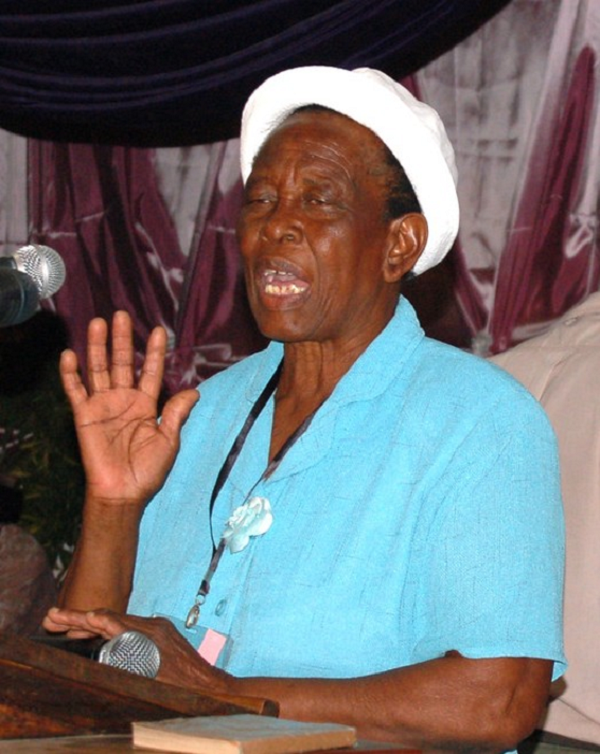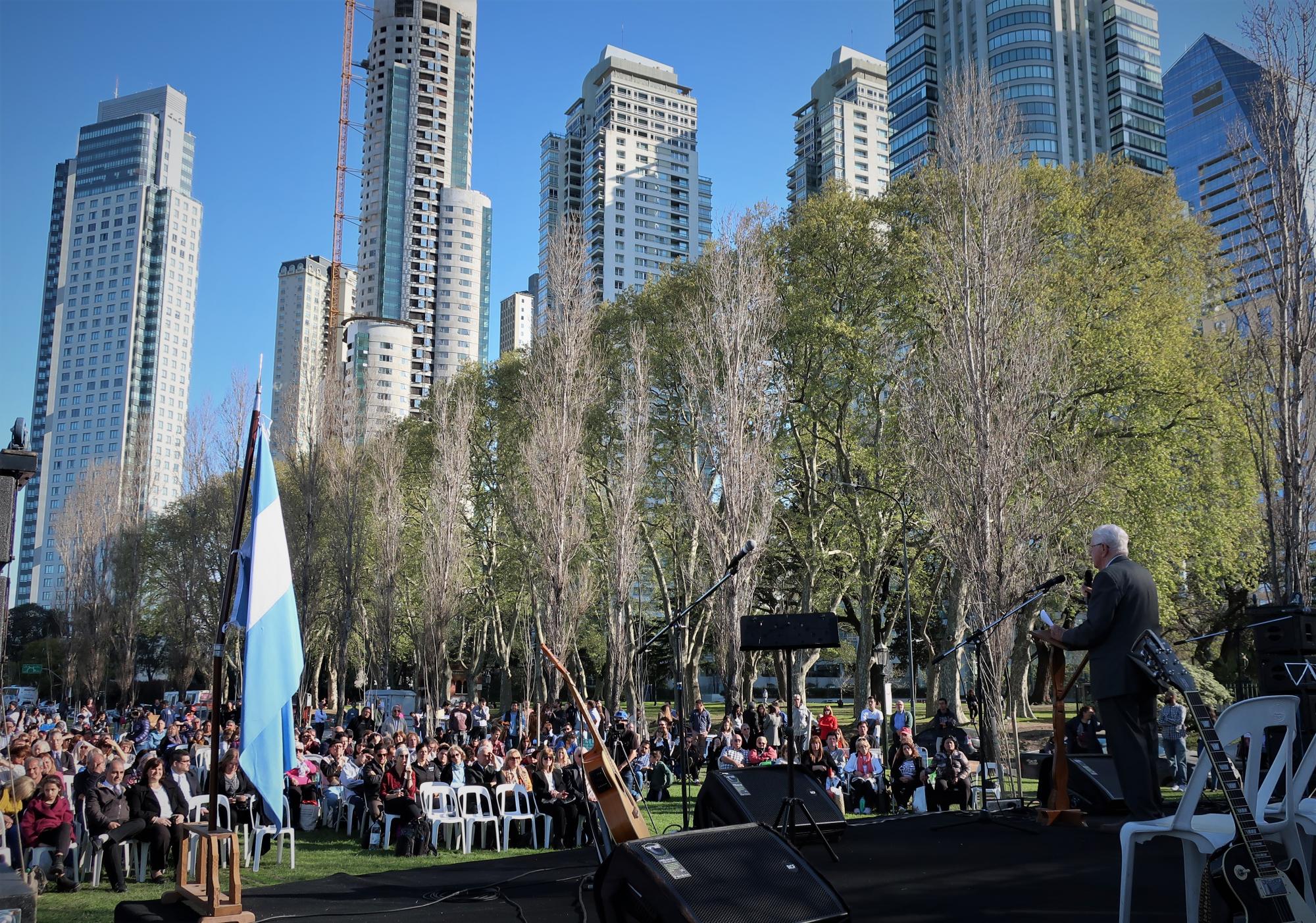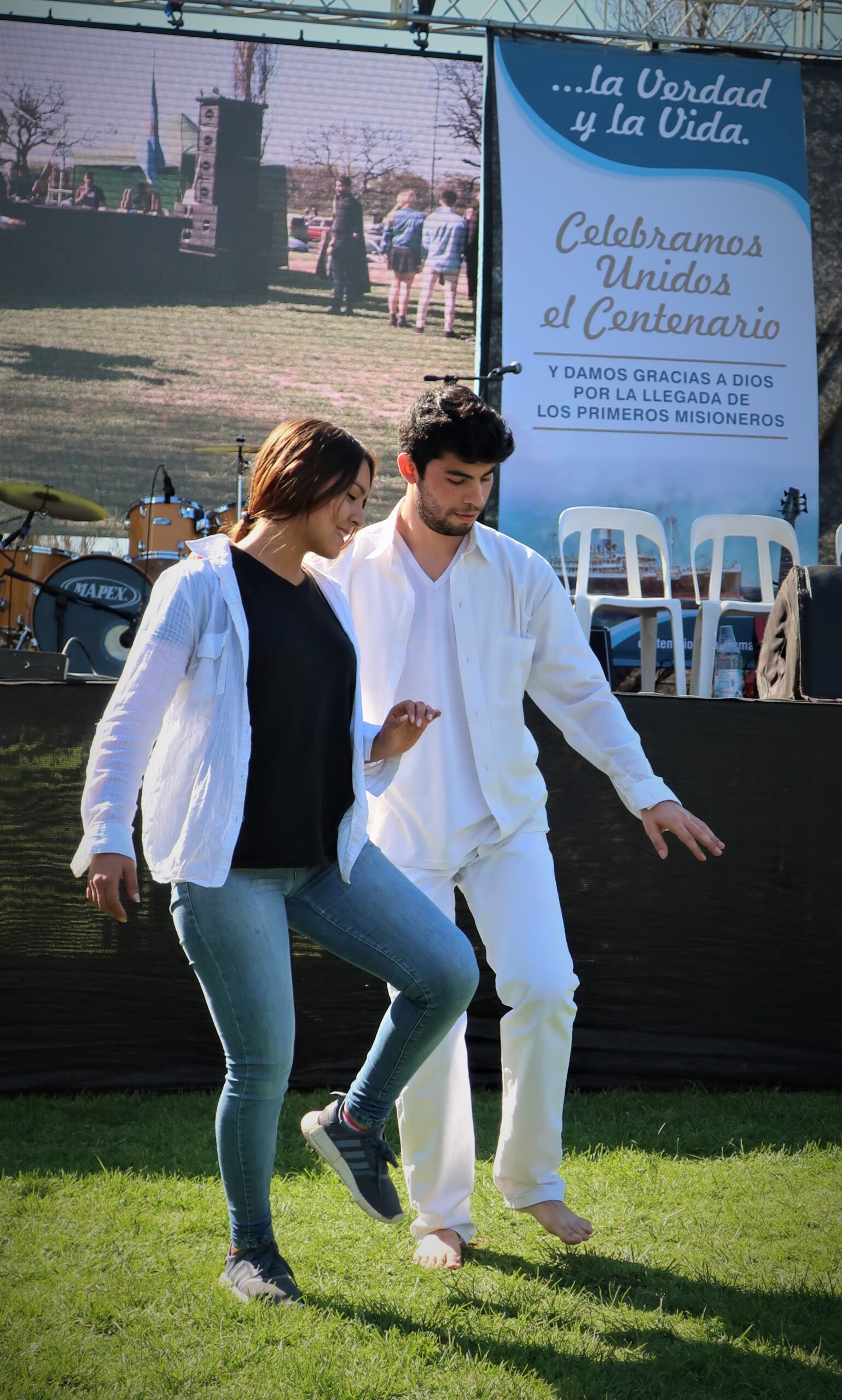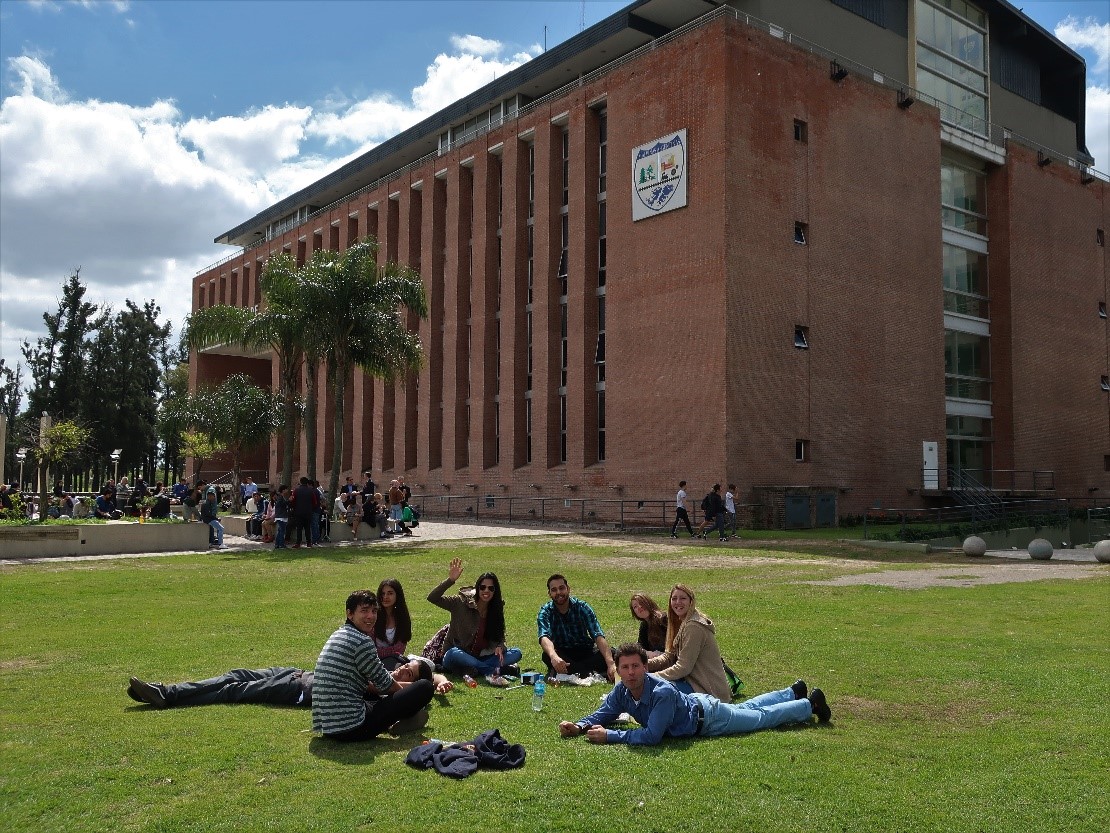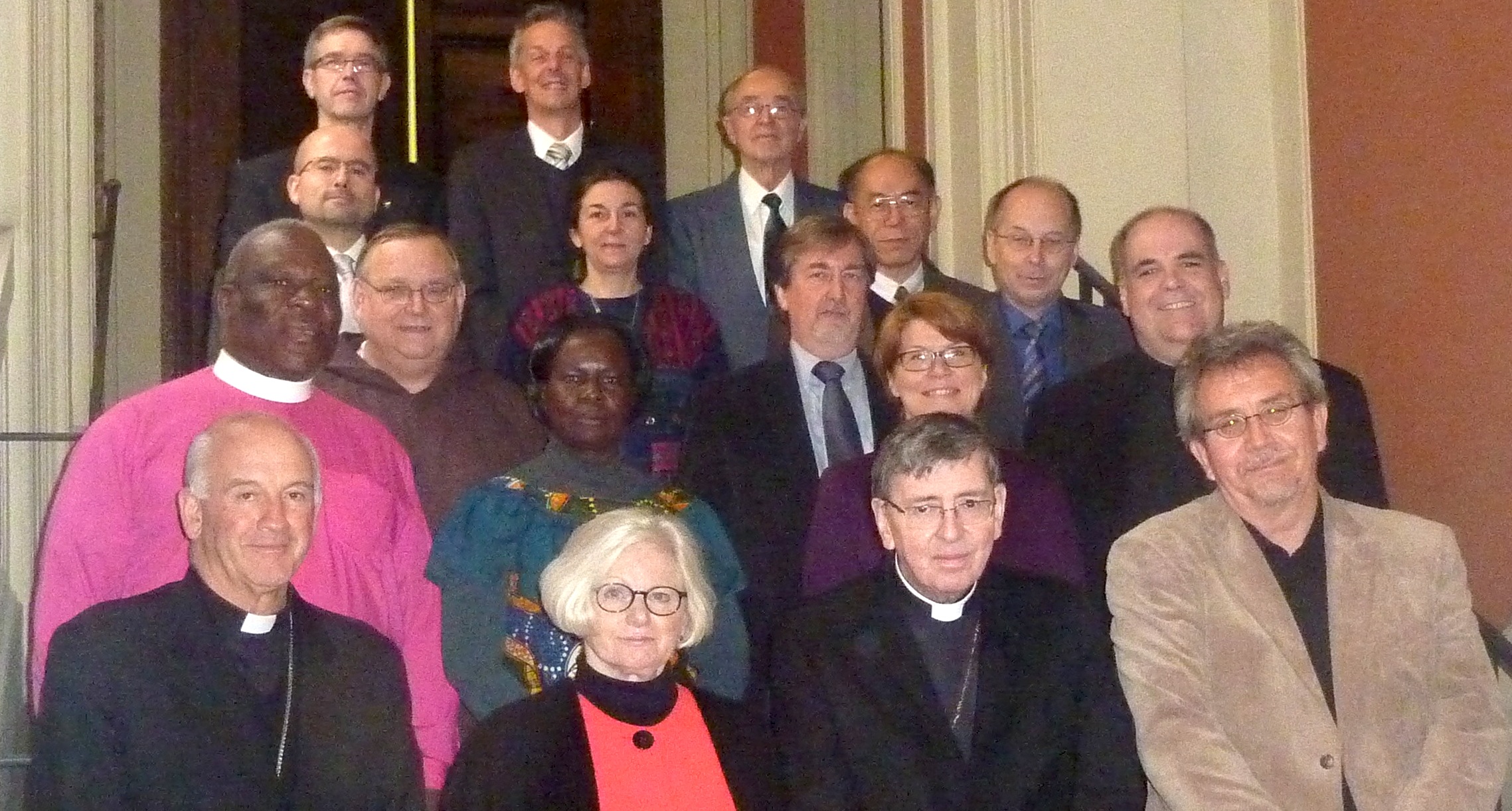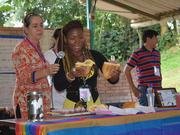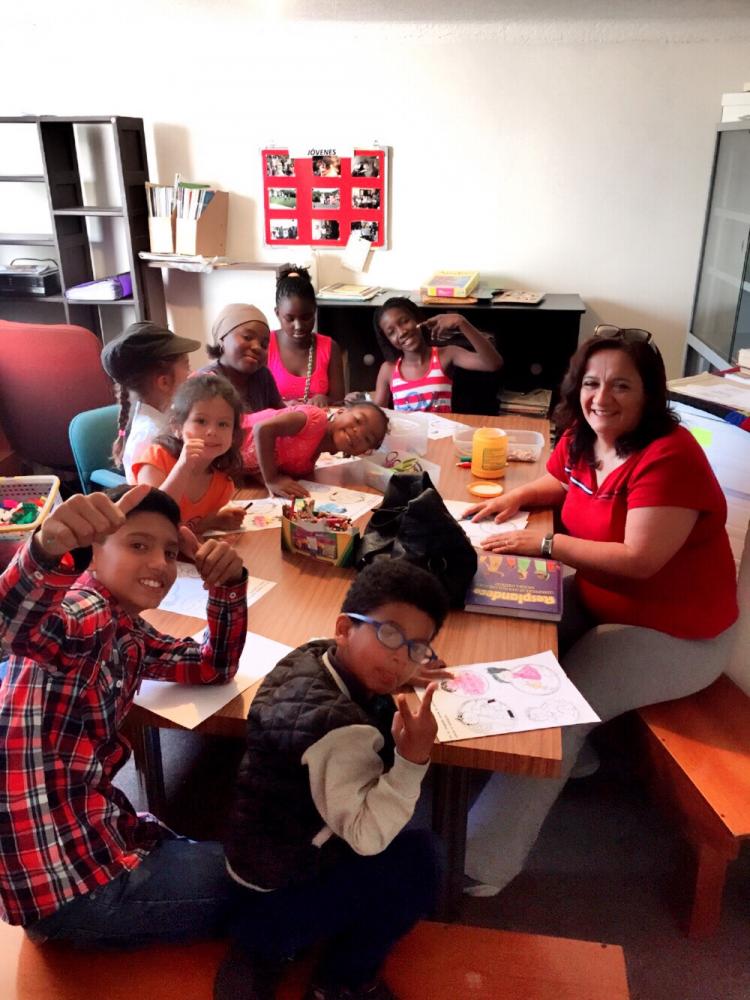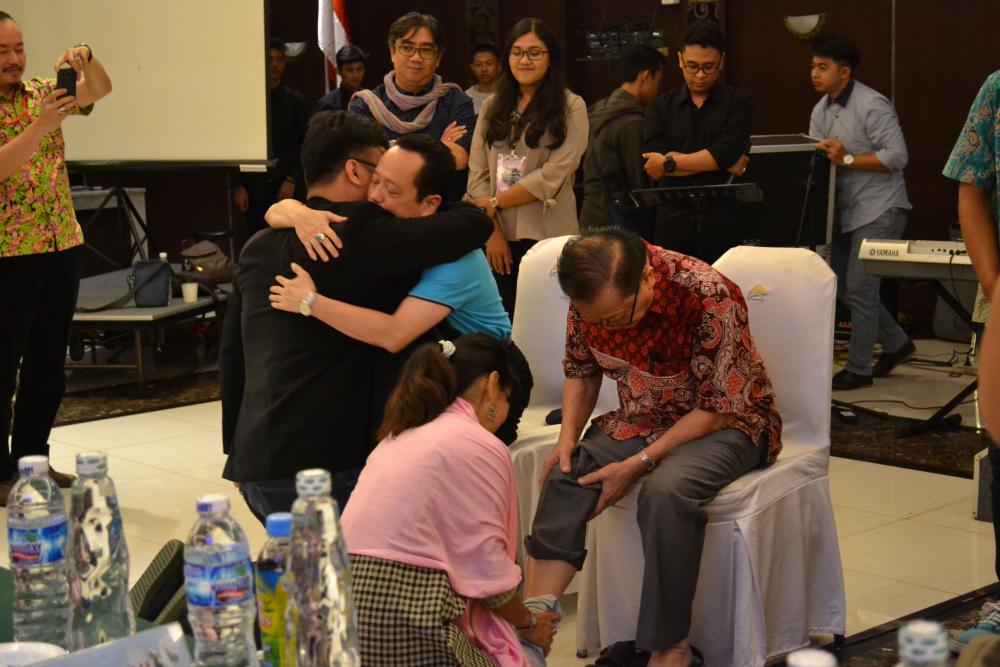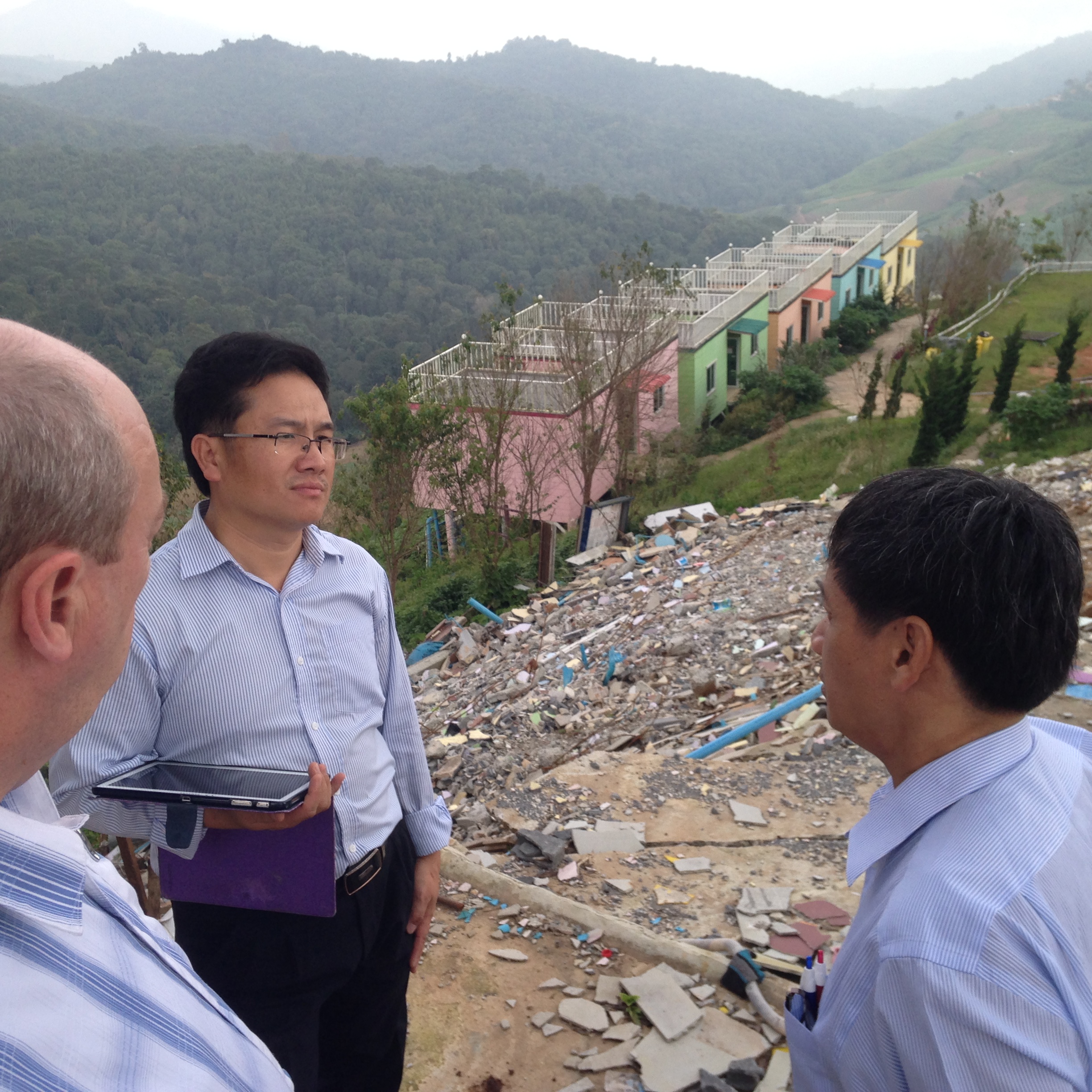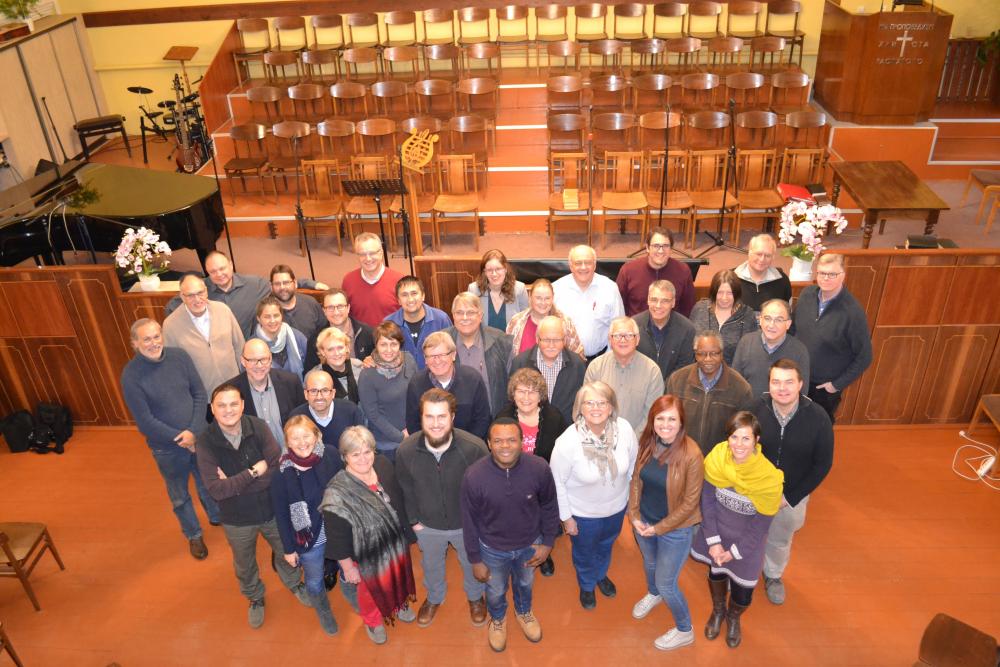-
Stop and listen
Nellie is a woman who has achieved many firsts against many odds in the Brethren In Christ Church (BICC) in Zimbabwe. She has been a valued lay preacher right through life, particularly in large gatherings such as conferences.
-
Canadian seniors give for sustainability
Winnipeg, Manitoba, Canada – Eighty-nine-year-old John Penner still goes to work three times a week in the business he co-owns with his sons in Calgary. Travelling days are over – he walks with cane and his wife Katie relies on a walker – but “we are trying to keep ourselves busy and also to help other
-
Drama and mission as Argentine Mennonites celebrate one hundred years
Performing before hundreds of Mennonites and passersby at a park in downtown Buenos Aires 16 September 2017, a drama troupe from the Mennonite church in Villa Adelina, Argentina, mimed challenges and struggles facing youth: violence, drugs, promiscuity, greed, and death itself. Representing Argentinian youth, actor Laura Burgos sometimes seemed mesmerized as actors impersonated threats, but
-
Mission Commission calls Anabaptists to urgency in mission
Like the chambers of a heart, the four MWC commissions serve the global community of Anabaptist-related churches, in the areas of deacons, faith and life, peace, mission. Commissions prepare materials for consideration by the General Council, give guidance and propose resources to member churches, and facilitate MWC-related networks or fellowships working together on matters
-
Reconciling witness after tragedy in Argentina
When Mennonites of Argentina planned a mission conference to mark the 100th anniversary of Anabaptist witness in their country, they received an unexpected gift: free use of the Palacio Municipal (municipal building) in Malvinas Argentinas, a suburb of greater Buenos Aires. That generosity came due to a tragedy that grabbed the nation’s attention a year
-
Catholic, Lutheran, Mennonite, Trilateral Dialogue Commission on Baptism
Third meeting of the Catholic, Lutheran and Mennonite Trilateral Dialogue Commission on baptism Elspeet, Netherlands – Representatives of the Catholic Church (Pontifical Council for Promoting Christian Unity), the Lutheran World Federation, and Mennonite World Conference met in Elspeet, the Netherlands, 9–13 February 2015, for the third meeting of the Trilateral Dialogue Commission on Baptism. The
-
A transformative year: YAMEN participants meet God and people
Bogotá, Colombia – “The gospel connects us all no matter where we are,” says Laurey Segura. She lived out this realization as a teacher and youth worker with the help of Young Anabaptist Mennonite Exchange Network (YAMEN), a joint Mennonite Central Committee (MCC) and Mennonite World Conference (MWC) program which allowed the Costa Rican Mennonite
-
Mennonites in Quito pray and work for peace
Ana (not her real name), came to Ecuador from Medellin, Colombia, in 2016 after escaping from paramilitaries who had taken and kept her hostage for two years. She was subjected to various kinds of abuse and violence, the result of which was pregnancy. In addition, she was forced to commit a number of crimes. Although
-
Deacons: servants in the Father’s house
Like the chambers of a heart, the four MWC commissions serve the global community of Anabaptist-related churches, in the areas of deacons, faith and life, peace, mission. Commissions prepare materials for consideration by the General Council, give guidance and propose resources to member churches, and facilitate MWC-related networks or fellowships working together on matters
-
Hmong committed to Jesus despite persecution
Ponchai Banchasawan, pastor of the Thupberg congregation of the Hmong Church of Christ in Thailand, stands next to a debris field where the chair of his congregation owned a guest house that he rented to people vacationing in the mountains. In the summer of 2016, government soldiers surrounded this property, told the owner he did
-
Ministry partner update: ICOMB – December 2017
The International Community of Mennonite Brethren (ICOMB) is made up of 21 national churches in 19 countries with approximately 450,000 members. ICOMB exists to facilitate relationships and ministries to enhance the witness and discipleship of its member national churches – connecting, strengthening and expanding. Serve the national church leaders I met with European Mennonite leaders
-
Migrant Trail walkers imitate Jesus
“Our Anabaptist history is intrinsically tied to migration, and so is our Christian story,” says Saulo Padilla, immigration education coordinator for Mennonite Central Committee (MCC) U.S. “We must keep challenging the narratives that separate us, build borders and invite us to dehumanize others.” Several Anabaptist-Mennonites participated in the 14th Migrant Trail Walk May 29–June 4,
